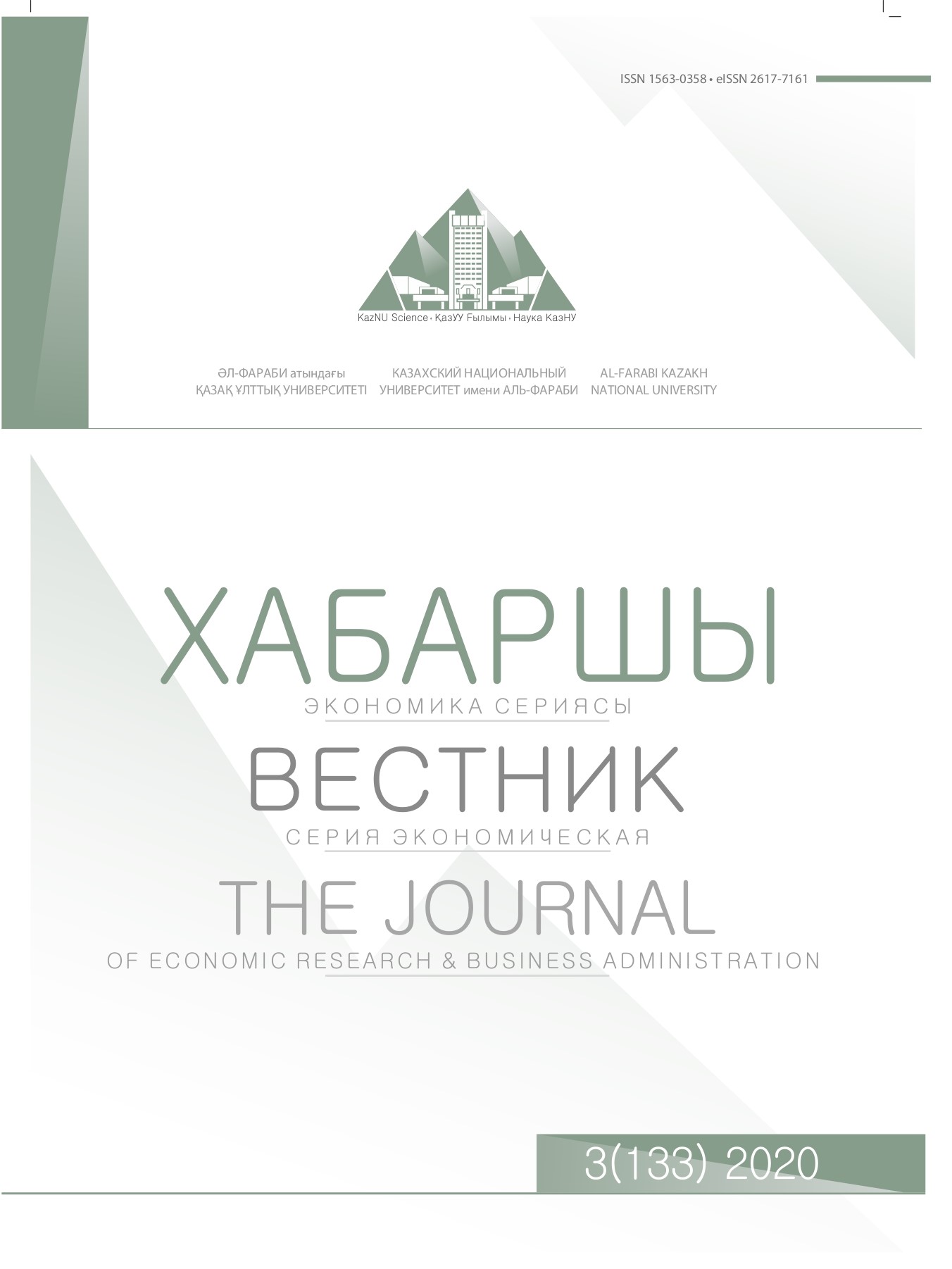Оценка банковского риска с помощью Z-показателя и его влияние на финансовое состояние отрасли переходной экономики Казахстана
DOI:
https://doi.org/10.26577/be.2020.v133.i3.04Аннотация
Изучение систематического риска банковской отрасли как меры финансовой устойчивости
является одним из вариантов оценки того, насколько сильны позиции отрасли в целом по отношению
к самому систематическому риску. Есть ряд исследований в смежных областях как для развитых,
так и для развивающихся рынков. Это исследование является частью общего исследования
эффективности банковской индустрии в развивающихся странах с переходной экономикой. С
помощью оценки риска посредством измерения Z-показателя мы пытаемся оценить финансовое
состояние учреждений и отрасли в целом. Это позволит нам изучить финансовые показатели и
показатели конкретного рынка. Другой момент заключается в том, что исследование охватывает
период после финансового кризиса с определенными макроэкономическими колебаниями
эндогенных для отрасли проблем, таких как девальвация между периодами охвата исследования.
Эти влияющие факторы помогают нам понять влияние внешних и внутренних потрясений,
влияющих на банковскую индустрию. Взаимосвязь между финансовой стабильностью и общей
прибыльностью, как отношение риска и доходности с влиянием внешних факторов, таких как
кризис и внутренние макроэкономические шоки, как девальвация, является ключевой точкой
интереса данного конкретного исследования. Результаты показывают, что размер банка играет
важную, но отрицательную роль в поведении банка. Это негативно сказывается на финансовом
состоянии банковской индустрии. В целом, финансовая стабильность очень нестабильна;
поскольку колебания Z-показателя в течение периода исследования значительны, указывается
лишь то, что переходная экономика очень сильно уязвима как к внутренним, так и к внешним
рискам.













